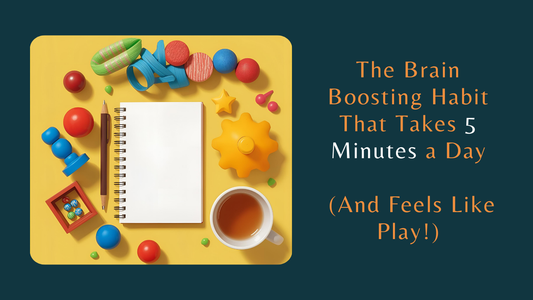What do we mean by “killing” a child’s motivation?

Children are born curious. They want to explore, play, and try new things. When we talk about “killing motivation”, we mean unintentionally chipping away at that natural spark.
As parents, we sometimes do things, without realising, that make our children less excited about learning or trying. Motivation can be intrinsic (coming from inside, like doing something because it’s fun) or extrinsic (coming from outside, like doing something for a reward or to avoid punishment). The healthiest motivation is intrinsic. That’s when children do something because it lights them up, not because they’re promised a treat.
What’s the “one thing” many parents do that harms motivation?

It sounds surprising, but the biggest culprit is too much praise and too many rewards.
Think about it. When a child hears:
- “Do your homework and I’ll give you chocolate” → they learn to do it only when there’s something in it for them.
- “You’re so clever!” every single time → they start chasing your approval instead of enjoying the process.
Over time, this makes children less interested in the activity itself and more focused on “what’s in it for me?”. Psychologists call this the over justification effect: when external rewards actually reduce natural interest.
Why does this approach backfire?

Because it shifts their focus.
Instead of:
-
“I like drawing because it’s fun.”
They think: - “I’ll only draw if I get something for it.”
Constant praise like “you’re so smart” can also pile on pressure. Children may fear failing, because it threatens their “label”. They stick to safe choices instead of taking risks or experimenting yet those risks are exactly how real learning happens.
So how can parents encourage motivation in a healthier way?

The answer isn’t to stop praising altogether. It’s about shifting the type of encouragement we give.
Here’s how:
-
Praise effort, not just results
Instead of “You’re clever”, say “I love how you kept trying different ways to solve that”. -
Spark curiousity
Ask questions like “What do you think will happen if…?” or “Why do you think that works?”. -
Allow natural consequences
If they forget their PE kit, let them deal with the small discomfort of missing out—that’s a life lesson in responsibility. -
Give choices
Let them pick between two activities or decide the order they’ll do tasks in. A little autonomy builds ownership. -
Show your own passion
Let them see you reading, exploring hobbies, or trying something new yourself. Children copy what we model.
What’s the difference between healthy encouragement and harmful overpraise?

Healthy encouragement:
- Focuses on effort (“I love how hard you worked”).
- Celebrates progress (“You’ve improved so much since last time”).
- Encourages curiosity (“That was a clever way to try it out”).
Harmful overpraise:
- Labels the child (“You’re a genius”).
- Focuses only on outcomes (marks, trophies, speed).
- Creates dependence on approval.
In short, healthy encouragement builds confidence. Overpraise creates pressure.
But isn’t some praise and reward important?

Absolutely. Children need to feel seen and valued. But rewards should be the exception, not the rule. Praise should be specific and genuine, not generic.
Think of it this way: rewards are like pudding. Lovely as a treat, unhealthy if they replace the main meal.
How does resilience fit into motivation?

Resilience being able to bounce back after setbacks is vital for long-term motivation.
If a child is always told they’re “clever”, they may avoid hard things for fear of losing that identity. If, instead, they’re praised for effort, they learn that mistakes are part of the process. That’s the essence of a growth mindset: believing you can improve through effort and practice.
What small changes can parents start today?

- Swap “You’re clever” for “You worked really hard on that.”
- Cut back on bribes for everyday tasks.
- Let your child be bored sometimes it sparks imagination.
- Ask open questions instead of always giving solutions.
- Celebrate mistakes as learning moments.
How does school affect motivation and what can parents do at home?

Schools often rely on stickers, star charts, and grades. That can reinforce extrinsic motivation.
At home, you can balance that by focusing on the joy of learning. Instead of:
-
“What grade did you get?”
Ask: - “What did you enjoy learning today?”
It shifts the focus from marks to meaning.
What’s the long-term impact of raising a child who’s intrinsically motivated?

They’re more likely to:
- Stay curious and love learning.
- Bounce back from setbacks.
- Be creative and resilient.
- Feel confident without needing constant approval.
And isn’t that what we want for our children to grow into adults who find joy in the journey, not just the outcome?
Final Thoughts: Are You Accidentally Killing Motivation?
Most parents slip into the reward-and-praise trap it’s only natural. But being aware of it means you can choose a better path.
By shifting your focus to effort, curiousity, and resilience, you’ll protect your child’s natural spark. Next time you’re tempted to say, “You’re so clever”, try: “I love how hard you worked on that.”




